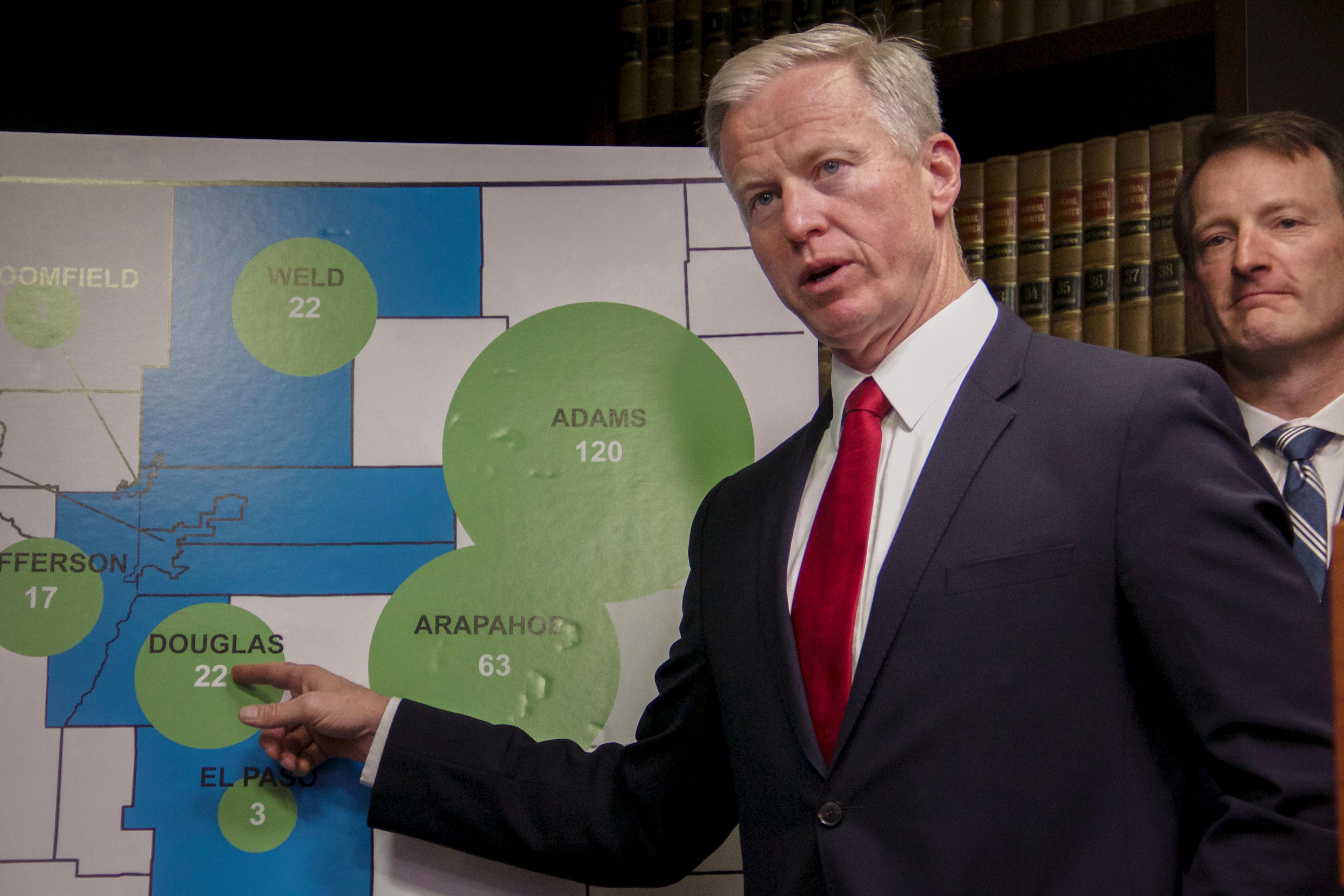

Colorado law enforcement announced in May that they’d seized what amounted to a small forest of marijuana: 80,000 individual plants and two tons of finished cannabis product.
It was part of a sweeping marijuana bust, just the latest in the state’s crackdown on illegal cannabis. There have been more than 500 felony arrests and almost 100,000 plants seized between 2016 and 2017, according to the latest data from the Rocky Mountain HIDTA Colorado Task Force.
Cannabis is one of the state’s most infamous exports, and law enforcement officials admit they’ll never come close to eradicating the problem. In fact, since legalization, the black market is thriving.
“I’ve never seen the black market for marijuana as robust and as expertly cultivated, forgive that pun, as I have right now,” said District Attorney George Brauchler, who has been a prosecutor for 25 years.
The financial incentive to continue to break the law is just too great. While 10 states and the District of Columbia have passed full marijuana legalization, the vast majority of the US still lacks access to legal cannabis. There are large margins to be made in taking the risk of growing for the black market.
“You take $1,000 worth a pound of marijuana out here, and it’s about $4,000 to-$5,000 out in Florida,” Brauchler said.
Much of the cannabis is shipped across the country on I-80, through the Midwest towards the East Coast. It’s a phenomenon fed by states where cannabis is legal, most in the West.
“Certainly Colorado’s one of them,” said John Bolduc, superintendent of the Nebraska State Patrol. Nebraska once sued Colorado over the influx of cannabis to the state. “We see a lot of marijuana from Oregon, we see a lot from California, we’re seeing some from Nevada.”
Brauchler said Colorado’s combination of permission for small personal grows and lenient cannabis sentencing laws make the state the ideal place to hide a black market grow.
The illicit grows are often found in suburban homes, in wealthier neighborhoods, Brauchler said. In one bust in a 55-and-older community a few months ago, law enforcement pulled around 1,000 plants out of a home.
“You’ve got to wonder how do you walk around in there without feeling like you’re in that movie ‘Children of the Corn’ or something,” Brauchler said. And yet, in most busts, neighbors say they had no idea anything illegal was happening.
But the illegal grows are often part of larger criminal operations. Bolduc said law enforcement often seize narcotics and guns, along with the marijuana.
“The folks who are engaged in the black market in marijuana, in other illicit drugs, are not exactly your upstanding citizens,” said Bolduc. Many of those charged in the busts are foreign nationals, although authorities stop short of linking them to major cartels.
Regulation Works, Many Say
That’s a world away from Colorado’s regulated marijuana market. Here, consumers can shop in licensed cannabis stores, which are convenient and cheap. Law enforcement officials say regulated growers do not play a big role in the black market.
“Well, because the regulated growers have way too much to lose,” said Dean Heizer, chief council for LivWell, a large chain of dispensaries in Colorado.

LivWell stocks an array of products, from the traditional green buds to vape pens to edibles. He said so much money has been invested in these stores, and the grows that feed them, that any association with the black market would be foolish.
“The little bit of money you might be able to make diverting product compared to the risk you take and the jail time you might serve and frankly the headlines that you might make, it’s just not worth it,” said Heizer.
He doesn’t think the practice of looping, when customers buy lots of cheap marijuana directly from stores then drive it across state lines, is widespread. The Sweet Leaf chain of dispensaries was shut down for allegedly allowing looping at its stores, according to authorities.
Heizer, who believes Sweet Leaf was an outlier, said LivWell’s budtenders watch out for looping.
“Most of our folks are trained on the fact that if you’ve seen this person twice start asking questions,” he said.
‘They Find A Way’
But the fix for the healthy black market is not necessarily on the supply side, said Brauchler. Criminals are “like water: they find a way,” he said. As long as marijuana fetches exponentially more money out of state, Colorado’s black market will never be stopped. The only thing that will quell demand is for more states to legalize it, and meet the demand themselves.
“And I don’t wish that on them,” said Brauchler, a Republican. “That’s a decision for them and their voters.”
But, he said, only allowing the black market into the open air will bring it to an end.







